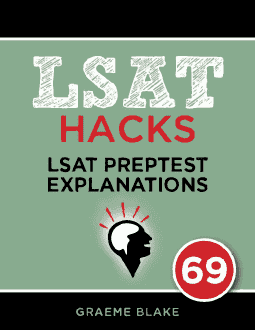This is an explanation for passage 3 of LSAT preptest 69, the June 2013 LSAT – the comparative passage. These passages are about the problem of software patents, and how companies can patent obvious techniques.
This section has the passage analysis, links to the explanations for the questions are below.
Paragraph Summaries
Passage A
- The patent office is allowing obvious patents.
- It’s impossible to invent around some patents.
- Large companies amass patents in order to sue anyone that sues them. Some companies make the mistake of not doing this.
- It’s almost impossible to make software without infringing patents, and it’s incredibly expensive to find all relevant patents.
Passage B
- Our company supports open source and abolishing patents.
- Unfortunately, patents exist and are dangerous.
- Many companies own defensive patents, we will do the same.
Analysis
Software patents are a big problem in the tech world. Passage A gives an overview of the problem, and passage B gives one company’s perspective on how a business should deal with this problem.
Some technical solutions are obvious, says the first paragraph of passage A. And companies are now allowed to patent these obvious solutions.
One famous example is Amazon’s patent on one click shopping. Their idea: Pressing a button on a sales page that lets you order and pay for an item with one click.
That seems incredibly obvious. But, in 1999, the patent office ruled it was a valuable invention. Now amazon is the only company allowed to offer one click shopping, until the patent expires.
Licensing Is Difficult: Get Defensive Patents Instead
Companies can license patents. But it gets complicated. Suppose, for example, that you want to make some new software. You’d have no idea which obvious ideas were patented.
It would cost you a lot of money to find out. And it would be very expensive to license all the relevant patents.
So some companies amass an arsenal of patents. If someone sues them, they’ll sue that company. People will be hesitant to sue any company with a patent arsenal.
It’s risky for a company not to have such an arsenal. That’s why the company in passage B is using patents.
The company doesn’t think patents should exist. But patents do exist, so the company is using them, for now, to protect itself.


Leave a Reply